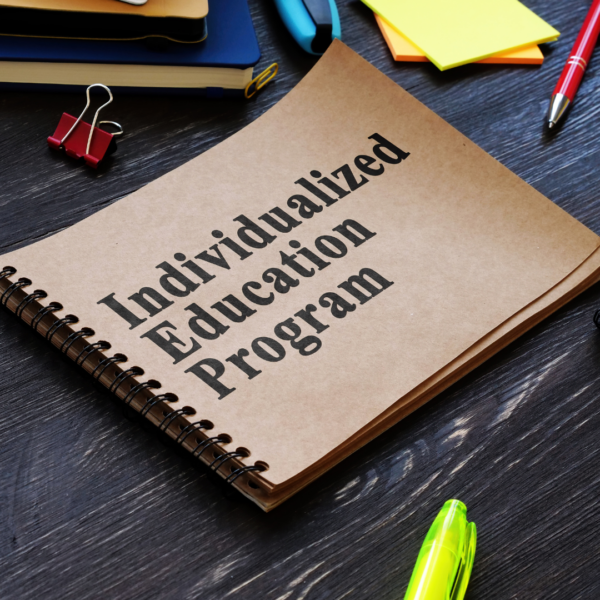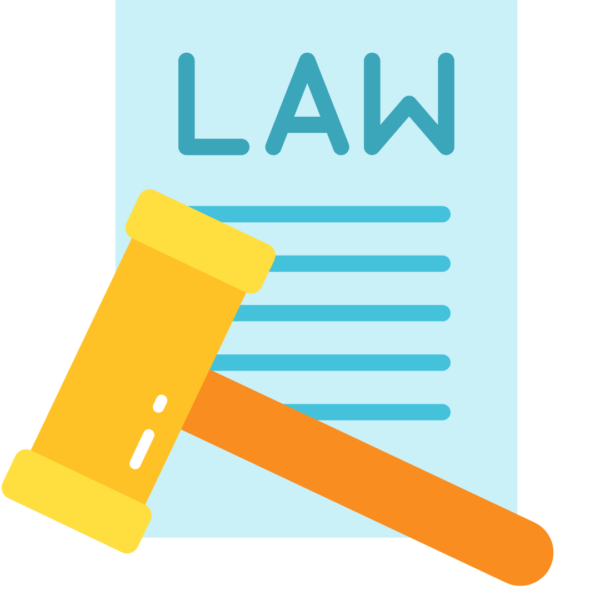FAPE stands for Free Appropriate Public Education, and it is a fundamental concept in special education. It ensures that all students with disabilities have the right to receive a free and adequate education that meets their unique needs.
For educators, FAPE guides their practice by requiring them to provide individualized education programs (IEPs) or accommodation plans tailored to meet each student’s specific needs. It ensures that educators are equipped with the resources and training necessary to support students with disabilities effectively.
For parents and guardians, FAPE provides peace of mind–the understanding that their children are entitled to receive an education that will help them thrive. It gives them the confidence to advocate for their child’s rights and to actively participate in the educational decision-making process.
FAPE is the right of all students with disabilities to receive a free and appropriate public education that includes necessary services. It is a vital component of special education, benefiting students, educators, parents, and guardians by ensuring equal educational opportunities and support for individuals with disabilities.
Importance of FAPE for Students with Disabilities
FAPE is of the utmost importance for students with disabilities, as it guarantees their civil right to receive a quality education that meets their unique needs. Every child, regardless of their disability, has the right to access a public education that is both free and appropriate.
First, FAPE guarantees that students with disabilities are not excluded from the educational opportunities that are available to their peers. It ensures that they have the same opportunity to learn, grow, and succeed as any other student. By providing a free education, it removes financial barriers that may prevent students with disabilities from accessing education.
Second, FAPE recognizes that students with disabilities have unique needs that must be addressed so that they can fully benefit from their education. It acknowledges that their educational experience may require additional resources, support services, or accommodations to ensure their success.

Through the provision of IEPs or Section 504 plans, students with disabilities can obtain the necessary accommodations and modifications to tailor their education to their specific needs.
Finally, FAPE establishes a legal framework for school districts to comply with federal laws, specifically the Individuals with Disabilities Education Act (IDEA). It sets standards and guidelines that schools must follow so that students with disabilities receive the necessary support and services outlined in their IEPs or Section 504 plans. By adhering to FAPE, school districts can ensure that they are fulfilling their obligation to provide a quality education to students with disabilities.
Legal Framework for FAPE
The legal framework for FAPE is a crucial aspect of special education in the United States. Under federal law, FAPE mandates that all students with disabilities have the right to receive an education that meets their unique needs at no cost to their parents or guardians. To facilitate compliance with this requirement, specific laws and regulations have been established to guide the provision of special education services and support. This includes the Individuals with Disabilities Education Act (IDEA) and Section 504 of the Rehabilitation Act, both of which establish the rights of students with disabilities and the responsibilities of schools and education agencies. Understanding the legal framework for FAPE is essential for educators, parents, and advocates so that students with disabilities are afforded the educational opportunities they deserve and are given the necessary support to succeed academically and socially.
Individuals with Disabilities Education Act (IDEA)
The Individuals with Disabilities Education Act (IDEA) is a federal law that ensures that students with disabilities have access to a free, appropriate public education. IDEA has gone through several amendments throughout the years, all aimed at improving educational opportunities for students with disabilities.
Key provisions of IDEA include the requirement that schools conduct evaluations to determine eligibility for special education services, the development of IEPs for each eligible student, and the provision of related services such as speech therapy or occupational therapy.
IDEA also mandates access to the general education curriculum for students with disabilities. This means that students must have the opportunity to participate in the same classes and activities as their peers without disabilities, to the maximum extent appropriate. Schools must make accommodations and modifications to support this access, such as providing assistive technology or specialized instruction.

Transition services are another important component of IDEA. These services are designed to help students with disabilities transition from school to post-secondary education, employment, or independent living. Transition services may include vocational training, career counseling, and assistance with college applications or job placements.
IDEA provides numerous rights and protections for students with disabilities and their families, including the right to due process, which guarantees parents the opportunity to resolve conflicts or disputes with the school district. IDEA also enables access to appropriate assessments, accommodations, and modifications so that students with disabilities can fully participate in educational activities and demonstrate their knowledge.
IDEA is a crucial piece of legislation that ensures equal educational opportunities for students with disabilities. By providing individualized plans, access to curriculum, and necessary support services, IDEA promotes inclusion and the principle of the least restrictive environment, bolstering the right of students with disabilities to receive an appropriate education alongside their non-disabled peers.
Overview of IDEA and Its Requirements for FAPE
Under IDEA, FAPE means that children with disabilities are entitled to educational services and support tailored to their unique needs, at no cost to their families. This includes specialized instruction, related services such as speech therapy or occupational therapy, and any necessary accommodations or modifications to the general education curriculum.
To meet the requirements of FAPE, schools must develop an IEP for each student with a disability. The IEP outlines the specific goals, accommodations, and services that will be provided to the student to ensure access to the same educational opportunities as their non-disabled peers.
IDEA mandates that students with disabilities be educated in the least restrictive environment (LRE) possible. This means that to the maximum extent appropriate, children with disabilities should be educated alongside their non-disabled peers in the general education classroom. Specialized instruction and services should be provided in a manner that allows for integration and inclusion, to the fullest extent possible.
Rights of Students and Parents under IDEA
Under IDEA, both students with disabilities and their parents are granted certain rights to ensure that the students receive an appropriate education. These rights aim to protect the educational interests of students with disabilities and empower their parents to make informed decisions about their children’s education journey. These rights not only enable students with disabilities to thrive academically but also promote their overall well-being in the educational system. Understanding these rights is crucial for parents and students who seek to advocate for their needs and achieve the provision of quality special education services.
Section 504 Of The Rehabilitation Act
Section 504 of the Rehabilitation Act of 1973 is a federal law that prohibits discrimination against individuals with disabilities in federally funded programs or activities. This includes public education programs.
Under Section 504, federal agencies and state and local programs receiving federal assistance must provide individuals with disabilities equal access to their programs. This means that such entities cannot discriminate against individuals with disabilities and must provide reasonable accommodations to ensure their participation.
A 504 Plan is a written document that outlines the accommodations and services that will be provided to a student with a disability in a public education program. It is less formal than an IEP, which is specifically for students who qualify for special education services. While both plans address the needs of students with disabilities, an IEP is more comprehensive and includes specific goals, objectives, and support services tailored to the individual student’s needs.

Accommodations and services included in a 504 Plan may vary depending on the student’s specific needs. However, common accommodations include extended time on tests, modified assignments, preferential seating, assistive technology, and behavior management plans. Services provided under a 504 Plan may include counseling, physical therapy, occupational therapy, and specialized instruction.
Comparison Between IDEA And Section 504 in Providing FAPE
The Individuals with Disabilities Education Act (IDEA) and Section 504 of the Rehabilitation Act of 1973 are two federal laws in the United States that aim to ensure FAPE for students with disabilities. While both laws share the goal of providing educational opportunities to individuals with disabilities, there are key differences between them.
IDEA is a comprehensive special education law that focuses on students who have been identified as having one of thirteen specific disabilities. Under IDEA, students are eligible for special education services if they require additional support to access the general education curriculum. These services must be provided through an IEP tailored to meet the unique needs of the student.
In contrast, Section 504 is a broader anti-discrimination law that applies to individuals with disabilities in all settings, including education. It prohibits discrimination based on disability and requires schools to provide reasonable accommodations to students with disabilities. Section 504 does not require the development of an IEP but rather a written plan, sometimes called a Section 504 plan, that outlines the specific accommodations necessary for the student.
While both IDEA and Section 504 seek to ensure equal educational opportunities, IDEA provides more specific protections and guarantees regarding the provision of special education services. It requires the development of an individualized plan and defines more robust procedural safeguards for students and families. Section 504, on the other hand, is broader in scope and focuses on preventing discrimination and providing reasonable accommodations to students with disabilities.
Protections Provided By Section 504 For Students With Disabilities
One of the key protections guaranteed by Section 504 is the right to nondiscrimination. This means that students with disabilities cannot be excluded from participating in any education-related activity solely because of their disabilities. Schools must make reasonable accommodations to allow these students to fully participate, such as offering ramps or elevators for students who use wheelchairs or providing assistive technology for students with visual impairments.
Additionally, Section 504 ensures the right to an appropriate education. Schools must develop IEPs or Section 504 plans to address the specific needs of students with disabilities. These plans outline accommodations, modifications, and support services that will help the students succeed academically and access the same educational opportunities as their peers.
Another important protection is the right to access physical spaces and facilities. Schools must make sure that buildings, classrooms, libraries, and other facilities are accessible to students with disabilities. This includes providing appropriate signage, accessible restrooms, and accessible transportation if needed.
In summary, Section 504 establishes fair treatment for students with disabilities, including equal access to education. It provides protections such as the right to nondiscrimination, appropriate education, and access to physical spaces. These safeguards help to create an inclusive educational environment, empowering students with disabilities to reach their full potential.
The Evaluation Process for Determining Eligibility
Determining eligibility for certain programs or benefits requires a comprehensive evaluation process to establish that individuals meet the necessary criteria. This process involves assessing an individual’s qualifications, characteristics, and circumstances to determine whether the specific requirements are met. By evaluating various factors such as income, age, residency, and other criteria, the eligibility determination process ensures that resources are allocated to those who truly need them. Whether it is for social welfare programs, educational grants, or medical assistance, the evaluation process plays a pivotal role in guaranteeing that resources are appropriately allocated to those who qualify.
Development of an IEP to Ensure That FAPE Is Provided
The development of an IEP is a critical part of ensuring a FAPE for students with disabilities. To create an effective IEP, several considerations must be taken into account.
The first consideration is determining the student’s present levels of performance. This involves assessing the student’s strengths, weaknesses, and current academic abilities in various areas. The evaluation should include input from teachers, parents, and any relevant professionals to gain a comprehensive understanding of the student’s abilities.
The second consideration is the identification of the student’s disability-related needs. It is important to determine the specific areas in which the student requires additional support or accommodations to access the curriculum and achieve academic success. These areas of need may include sensory impairments, communication difficulties, or specific learning disabilities.
Another consideration is evaluating the student’s potential for growth. This involves assessing the student’s ability to make progress in various areas over time. The IEP team should consider the student’s previous rate of academic growth and set ambitious yet attainable goals for the student’s future development.
Lastly, the effectiveness of special education services should be considered. The IEP team must review and analyze the results of any special education services provided to the student in the past. The goal is to make sure that appropriate interventions and accommodations are included in the IEP to meet the student’s individual needs.
FAPE is a cornerstone of special education, guaranteeing that students with disabilities receive an education tailored to their unique needs. This principle not only mandates the provision of IEPs but also ensures that accommodations and modifications are made to support each student’s learning journey. FAPE empowers educators with the resources and training necessary to support these students effectively, giving assurance to parents and guardians that their children are receiving the education they deserve.
The importance of FAPE cannot be overstated, as it promises that students with disabilities will not be excluded from educational opportunities. It guarantees that they have the same chance to succeed as their peers, addressing their unique needs through tailored educational plans and necessary support services. Legal frameworks such as the IDEA and Section 504 of the Rehabilitation Act further reinforce the rights of students with disabilities, providing a structured approach to meeting their educational needs and protecting their rights.
FAPE is more than a legal requirement; it is a commitment to equity and inclusion in education. By ensuring that all students with disabilities receive a free and appropriate public education, FAPE fosters an environment where every student can thrive academically and socially, regardless of their disabilities. The continued adherence to and advocacy for FAPE is essential for creating an inclusive educational system that respects and supports the potential of every student.



Leave A Comment